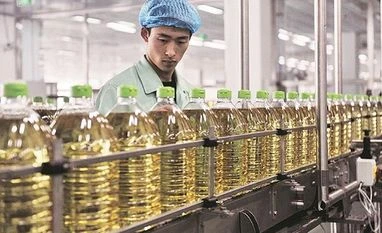The Centre’s ambitious plan to engage the private sector in the procurement of oilseed through Private Procurement and Stockiest Scheme (PPSS) under the PM-ASHAA programme has been a non-starter with no state willing to start any pilots or models to test the programme.
The private sector is not very inclined to participate in procurement, as it is not commercially viable for them given that the guidelines state that they would be compensated at the rate capped at 15 per cent of the notified Minimum Support Price (MSP) of the oilseed.
It would be entirely the private players’ responsibility to handle the procured commodity, including storage and transportation and also ensure its disposal and bear losses on that account.
The scheme’s guidelines state that disposal will have to be done at a time when no other procurement scheme is being run so that there is no round-tripping of the commodity.
Eight pilots had to test PPSS to cover oilseeds, for which MSP was declared by the government.
All the pilots had to be approved by the Ministry of Agriculture, but so far no state has come up with any proposal. With procurement getting virtually over in the next few weeks, there is little chance of any substantial progress in this direction.
The guidelines also state that the private companies that procured the oilseeds where to give relaxation from stock holding limits applicable during that time and also the mandi fees for them needs to be waived by the states.
As the current market rate of most kharif oilseeds, be it soybean or groundnut is around 6-13 per cent less than the MSP of Rs 3,399 per quintal for soybean at most places and 20-40 per cent less than the MSP of groundnut of Rs 4,890 a quintal. Commercial viability seems to be a big hurdle.
“To me, the biggest consideration and challenge in involving private players in oilseeds procurement is whether it would be commercially viable and if the offer isn’t viable, I doubt if private companies would be interested,” Sanjay Kaul, Managing Director of National Collateral Management Services (NCML), told Business Standard.
Kaul said when the difference between the market price and the state-mandated MSP is more than 20 per cent in case of oilseeds, in such a situation if the participants aren’t compensated adequately for bearing the loss, why would anybody be interested in the scheme.
“Also, I feel, states themselves are not very interested in running the pilots as they fear being labelled at favouring private sector in procurement,” Kaul said.
NCML, which has been one of biggest private players engaged in procurement of paddy on behalf of Food Corporation of India (FCI) said in case of paddy, they set up the procurement Centre, purchase paddy from farmers at MSP, store the produce, mill it and thereafter sell it back to the Corporation for which they are compensated at price, which is determined through open bidding process.
In Jharkhand, NCML has been engaged in procurement of paddy on behalf of FCI as an effort to boost procurement from Eastern India.
“The problem in this case (with FCI) is that funds are locked up for more than six months sometimes,” he said.
What is the scheme?
The Private Procurement & Stockist Scheme (PPSS) involved conducting eight pilots in eight states to test the involvement of the private sector in MSP ops. It is part of the wider umbrella of PM-ASHAA framed to ensure maximum farmers get the benefit of MSP. The remuneration to private players is capped at 15 per cent of the notified MSP of the oilseeds. Rest all expenses of handling, storage, distribution and sale losses have to be borne by the private participant.
Problems:
Just like other components of PM-ASHAA, this one too hasn’t picked up as no state has sent any proposal to participate in the pilots. Private companies said that capping the remuneration at 15 per cent of notified MSP when the actual market price has dropped much more does not make business sense to participate. States themselves aren’t keen to conduct any pilots.
In the recent past, the first attempt to involve the private sector in official procurement operations was made in 2008 when FCI engaged NCMSL (now known as NCML) and NBHC for procurement of paddy in Odisha and some other states.
Thereafter, in 2016-17, the Centre, along with the FCI again, roped in the private sector for procurement of paddy in Eastern India, where the procurement process was weak.
This time, it was slightly more structured and modalities were worked out in detail.
Hanish Sinha, Assistant Vice President of National Bulk Handling Corporation (NBHC) also says that with high MSP and low market price, unless the difference is paid to the trader, no one will participate in the PPSS for oilseeds.
“There have been some talk of pilots in some districts in MP, but nothing has moved,” Sinha said, adding that in the present form the scheme isn’t working.
Unlock 30+ premium stories daily hand-picked by our editors, across devices on browser and app.
Pick your 5 favourite companies, get a daily email with all news updates on them.
Full access to our intuitive epaper - clip, save, share articles from any device; newspaper archives from 2006.
Preferential invites to Business Standard events.
Curated newsletters on markets, personal finance, policy & politics, start-ups, technology, and more.
)